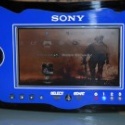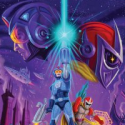Bill Gates Admits to Committing Video Piracy
 In a recent interview conducted by The Wall Street Journal, Microsoft founder, and soon to be ex-leader, admitted to enjoying a variety of videos that were put up on the web on sites like You Tube. These videos are commonly uploaded by people who do not own the copy rights to the video. Technically, this amounts to video piracy which is the bane of organizations like the RIAA and MPAA.
In a recent interview conducted by The Wall Street Journal, Microsoft founder, and soon to be ex-leader, admitted to enjoying a variety of videos that were put up on the web on sites like You Tube. These videos are commonly uploaded by people who do not own the copy rights to the video. Technically, this amounts to video piracy which is the bane of organizations like the RIAA and MPAA.
The following excerpt from the Interview shows that Gates, like many less famous accused video pirates, says he was not doing this maliciously.
Interviewer: You watch physics lectures and Harlem Globetrotters [on YouTube]?
Gates: This social-networking thing takes you to crazy places.
Interviewer: But those were stolen, correct?
Gates: Stolen’s a strong word. It’s copyrighted content that the owner wasn’t paid for. So yes.
I wonder if Mr. Gates would come to the defense of some of the people that are currently being sued by the MPAA for pirating their intellectual property? We all recognize that piracy is wrong. However, the point is that it is not necessarily appropriate for large corporate-owned organizations like the MPAA to apply the amount of legal force that they do to individuals regardless of their intent and the damage or lack of damage caused by the situation.
With the MPAA and the RIAA routinely bringing lawsuits against teenagers and even twelve year-old kids, it has become obvious that some perspective, a little restraint and some common sense would go a long way toward bringing a level of fairness to the issue of copy protection.
 In a recent interview conducted by The Wall Street Journal, Microsoft founder, and soon to be ex-leader, admitted to enjoying a variety of videos that were put up on the web on sites like You Tube. These videos are commonly uploaded by people who do not own the copy rights to the video. Technically, this amounts to video piracy which is the bane of organizations like the RIAA and MPAA.
In a recent interview conducted by The Wall Street Journal, Microsoft founder, and soon to be ex-leader, admitted to enjoying a variety of videos that were put up on the web on sites like You Tube. These videos are commonly uploaded by people who do not own the copy rights to the video. Technically, this amounts to video piracy which is the bane of organizations like the RIAA and MPAA.
The following excerpt from the Interview shows that Gates, like many less famous accused video pirates, says he was not doing this maliciously.
Interviewer: You watch physics lectures and Harlem Globetrotters [on YouTube]?
Gates: This social-networking thing takes you to crazy places.
Interviewer: But those were stolen, correct?
Gates: Stolen’s a strong word. It’s copyrighted content that the owner wasn’t paid for. So yes.
I wonder if Mr. Gates would come to the defense of some of the people that are currently being sued by the MPAA for pirating their intellectual property? We all recognize that piracy is wrong. However, the point is that it is not necessarily appropriate for large corporate-owned organizations like the MPAA to apply the amount of legal force that they do to individuals regardless of their intent and the damage or lack of damage caused by the situation.
With the MPAA and the RIAA routinely bringing lawsuits against teenagers and even twelve year-old kids, it has become obvious that some perspective, a little restraint and some common sense would go a long way toward bringing a level of fairness to the issue of copy protection.



